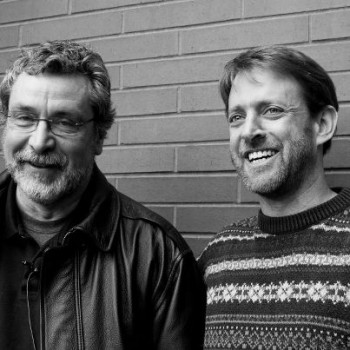“Other people matter. But few of them are mind readers. Let them know that they matter. They might benefit. And you certainly will.” —Chris Peterson
 Sadly, many of my readers probably first got to know about Chris Peterson when I published some excerpts of his writing a few days after he had passed away. Chris Peterson was one of the founding fathers of positive psychology and the co-author (along with Martin Seligman) of the field’s quintessential Handbook and Classification of Character Strengths and Virtues.
Sadly, many of my readers probably first got to know about Chris Peterson when I published some excerpts of his writing a few days after he had passed away. Chris Peterson was one of the founding fathers of positive psychology and the co-author (along with Martin Seligman) of the field’s quintessential Handbook and Classification of Character Strengths and Virtues.
He died (before his time) in his home earlier this year.
The good news is, Chris left us a gift . . . a published collection of his writings, Pursuing the Good Life: 100 Reflections on Positive Psychology (culled from his Psychology Today blog) is being released to bookstores this week.
Chris was one of my professors in the Applied Positive Psychology program at the University of Pennsylvania. So in homage to Chris and to encourage people to buy his book, I thought I would share three homework assignments that Chris gave me that all changed my life in not-so-small ways:
1. Use your strengths. One of Chris’s favorite assignments was to ask students to take a strengths assessment and then “use a signature strength in new ways” for one week. At the end of the week, students would submit a paper about their experience.
I practiced my #1 strength, “love of learning,” by obsessively googling interesting topics that came up in conversation and following footnotes that appeared in my reading.
The awareness and strengthening of my top strength surely led to the creation of this blog, which has served as my “classroom” in positive psychology since receiving my degree.
2. Develop a weakness. Always one to have a balanced approach to the science, Chris also asked students to work on a “lesser strength.” My bottom strength in the assessment came out as “spirituality” (a point I argued with Chris and he agreed that what the test really measures is “religiosity.”)
For one week, I practiced being more religious by saying grace before every meal and saying a prayer every night before bed. These rituals, I quickly realized, are about more than simple obedience to church doctrine. They are about infusing moments of hope, appreciation and love into your daily life. This exercise gave me a new appreciation for religion and a new way of thinking about my own spirituality.
3. Let them know. Chris’s final assignment was for students to choose someone close to them and write them a “gratitude letter” outlining all the things they appreciated about them. My initial reaction was to roll my eyes at the cheesy lameness of this assignment. But respecting Chris as much as I did, I put aside my preconceived notions and got into the task.
I chose to write a letter to my uncle Jim, perhaps my closest relative after my immediate family. The letter flowed easily (I had much to be thankful for) and it was good. I mailed it to my uncle for his 60th birthday (I wasn’t able to be there in person,) instructing him not to read it until he had me on the phone. Once he was on the phone I read him the letter. We both cried.
He cried again when he read it out loud to the rest of his family and friends who gathered at his birthday party. The letter brought him a lot of joy and it brought him and me closer together.
I now realize that gratitude is not cheesy or lame. In fact, it may be one of the most powerful forces in the universe.
 Hopefully these assignments give you a sense of the powerful wisdom that Chris had to share. His book is filled with it—100 short articles on “the Good Life” (what it is and how to get it.) Because I’ve been a fan of Chris’s blog for years, I had already, in essence, read most of the book. But the book is organized in an interesting way to give it a better flow. And the content is just as entertaining, (and the wisdom just as impactful) the second time around.
Hopefully these assignments give you a sense of the powerful wisdom that Chris had to share. His book is filled with it—100 short articles on “the Good Life” (what it is and how to get it.) Because I’ve been a fan of Chris’s blog for years, I had already, in essence, read most of the book. But the book is organized in an interesting way to give it a better flow. And the content is just as entertaining, (and the wisdom just as impactful) the second time around.
Chris Peterson’s passing adds a sense of poignancy and urgency to the teachings in his book. The good life is available, but it can also disappear when we least expect it to. If you’ve never written a gratitude letter, don’t wait. If you love someone, let them know. Life is too short and gratitude is far sweeter than regret.
—
References and recommended reading:
Peterson, C. (2012). Pursuing the Good Life: 100 Reflections on Positive Psychology. Oxford University Press.
I love the next generation. I think I will stick around a while and see what they will do. —Chris Peterson
Rest in peace Chris. I hope the next generation lives up to your expectations.
by Jeremy McCarthy
Follow me @jeremymcc on twitter.

What a great testament to Chris Peterson’s work and excellent reminders of what we can do to live a richer life. Now to determine who will be the recipient of my letter! Thanks for this great article.
One thing that I learned from Chris was not through his life, but in his death. We matter. I have to treat myself as though I matter. Not in a selfish way, but in a way that allows me to continue my service to others and contribute to a better world. Chris’ death was indeed untimely and preventable through healthier living and more attention to the warning factors. His death is all the more tragic because it was preventable, and because he worked hard to make other people feel as though they mattered, and he could have done more of that for himself. We miss Chris, and let’s honour his legacy in our lives at all levels. Perhaps another reason why physical well-being should be part of flourishing.
Another beautiful article, Jeremy. Thank you.
MJ
Wonderful Jeremy! Thank you so much for your beautiful reflections. I can’t help think what you and Chris are smiling about; great photo.
Although you found #3 cheesy, it’s incredible how hard it can be to express our feelings. It’s scary to put yourself out there and risk getting hurt or looking lame! But if you can start being more open and expressive with people, it’s incredible how much can change.
I used to be terrified of expressing how I feel. Then I became a dating coach, lost most of my inhibitions and started wearing my heart on my sleeve. As I started showing my love and appreciation for the people around me openly, my life changed dramatically.
Just like you said, letting people know creates a lot of joy – it’s hard not to return the favor and create a cycle of positivity. I’ve never felt more wanted or cared for by everyone around me. And it’s all because I started showing people how I feel.
It’s never easy to lose someone who helped us become who we are. I never met Chris, but he seems like a very wise man from his quotes and I’ll put his book on my reading list. Thank you for sharing, Jeremy.
I was thinking the same thing as Lisa – there are things way more important than pp – exercise, nutrition, not drinking excessively, not smoking, good sleep.
And the irony is that if these are in place most people wouldn’t probably need pp – or it sold make pp easier. And yes there is evidence for all this – just look at fredricksons stuy linking hrv to the upward spiral.
And the irony that chis was studying positive health.
My best friend still does #3. Even if she’s already 23 years old, she always makes a letter for me during special occasions. Though most of the contents about the letter are all about my “bad side,” I’m still grateful. She always makes me laugh even I find her letters very cheesy.